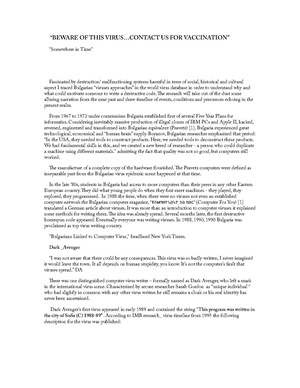User:Michaela/thesis
draft
name: Michaela Lakova title: X
The problem#1
- The ethical issue / interfering privacy ?
theme: PRIVACY IN DIGITAL REALM
The ethical issue I want to address is: who has the right to withdrawal someone's data and how this data could be used, reused or misused?
The problem#2
- The question of the ownership/ authorship? The problematic aspect of this data the project is less ethically charged, but instead it could go to a direction of who is the author/ share co-authorship.
//abstract = 250 words
intro = 500 words
This project is trigger by the idea of how the data trace is permanent, could not be destroyed or erased completely. It has been encapsulated within the time, the code and the medium itself.
How the act of data recovery and the reversed process is of erasing is already a critic?
Technical aspect
How data is structured?
What is cluster/partition?
What is data recovery?
<Data erasure
//[existing material: proposal and essay on practice, notes from methods class - texts that relate to your work]
Project description and aims
250 words
I have started a process of retrieving old hard drives disks (data storage) restoring the data out of them, in order to examine abandoned data and leftover traces. By doing this I am exploring the problematic aspect of data erasure.
The hard drive, in this case a rather obsolete object, serves as an ultimate storage of data, container of past and present, which could be also invaded and investigated further.
The traces of information are exponential they contain various sources...they travel, scattered being trade -transacted or serve as a found footage for artistic intervention.
[existing material: proposal and essay on practice]
Past work and contextualisation = 1000 [existing material: 'what, how and why' texts; notes from methods class - texts that relate to your work.]
chapter 2:
PROCESS BASED
For example this chapter could describe my methodology of data recovery.
I built a simple methodology of data recovery. The data storage is the approached collection of ten hard drives followed by information about the hard drive: the source of origin()
The documentation or the process of recovery consists of video capture of the used software and sound from a spinning hard drive disk (unable to boot). In order to organize this accidentally found archive I simply described the size/ model of each hard drive, the process of the remain time and amount of the restored data. Data collection consists of rich content of personal data: img files, videos files, audio files, code or text logs and trash (or unrecoverable files or parasite files etc.) Sample of found material:
Continuation of past work and contextualisation: 1000 [existing material: 'what, how and why' texts; notes from methods class - texts that relate to your work.]
chapter 3:
genesis of current project = 1000 [existing material: proposal and essay on practice]
chapter 4
current project and contextualisation = 2000 [existing material: proposal and notes for proposal]
chapter 5
exhibition = 1000 words
Conclusion = 500 words
Project proposal
Useful texts/ annotations
User:Michaela/Glitchy --- sorry can not link it!
Look at the pdf---> "BEWARE OF THIS VIRUS…CONTACT US FOR VACCINATION"
/ a research text, written before Piet Zwart might be relevant to my research /
Influential texts
- Apsolutno and Revolver. The Absolute report. Springerin.
(time/ space/ code/memory)
- Steyerl, Hito. In defense of the poor Image e-flux
- Luksch, Manu, Pate. Makul. "Faceless project" Voiceover
- Activearchive_kurenniemi /Different orders coexist
Word count 7500 words

